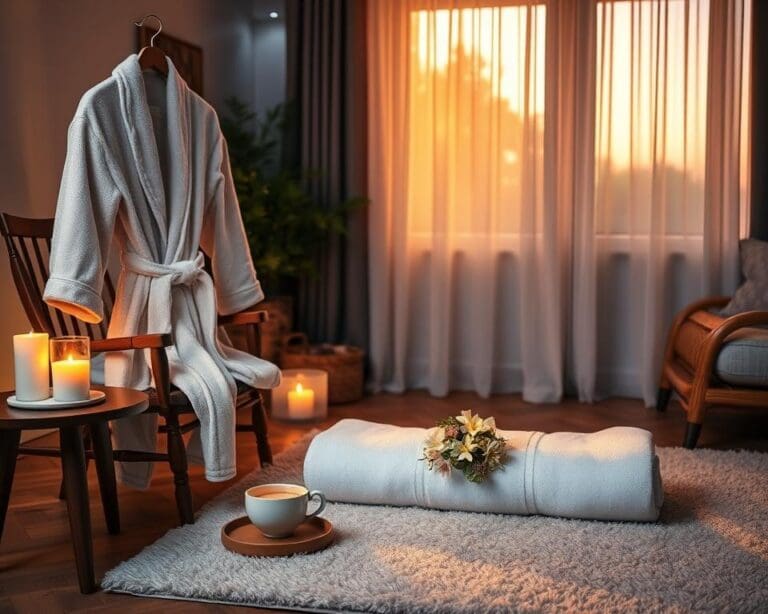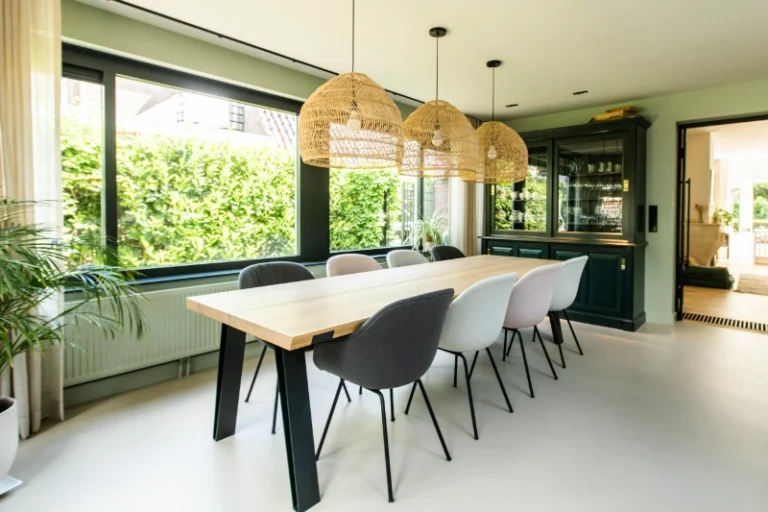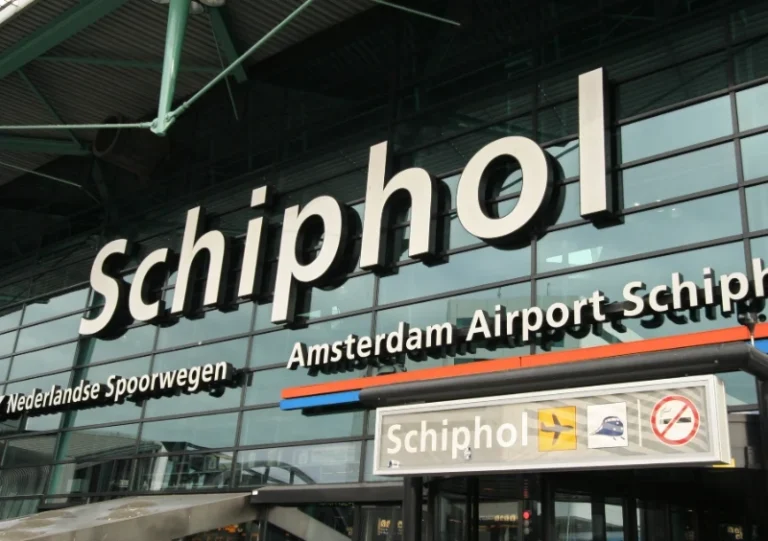Friesland, a province in the north of the Netherlands, is a treasure trove of unique cultural heritage and breathtaking landscapes. The region is dotted with charming villages, each with its own distinct character and history.
Exploring these special villages is a great way to experience the authentic Dutch culture that Friesland has to offer. From traditional Frisian architecture to vibrant cultural festivals, there’s something for everyone in this captivating region.
As you venture into the heart of Friesland, you’ll discover a world of Friesland tourism that is both enriching and unforgettable. Get ready to uncover the secrets of this enchanting province and immerse yourself in its rich heritage.
Key Takeaways
- Explore the unique cultural identity of Friesland’s villages
- Experience the authentic Dutch culture in Friesland
- Discover the charm of traditional Frisian architecture
- Enjoy vibrant cultural festivals in Friesland
- Immerse yourself in the region’s rich heritage
The Charm of Friesland: A Hidden Gem in the Netherlands
Nestled in the Netherlands, Friesland is a hidden gem waiting to be discovered. This northern province is renowned for its rich cultural heritage and breathtaking landscapes.
Friesland’s distinct character is deeply rooted in its history and the resilience of its people. The province is a testament to the Netherlands’ diverse cultural tapestry.
Friesland’s Unique Cultural Identity
Friesland boasts a unique cultural identity shaped by its history and geography. The Frisian language, closely related to Old English, is still spoken in the region, adding to its distinctiveness. The province is also known for its traditional dress, folk dances, and vibrant cultural festivals.
The Frisian heritage is preserved through various cultural practices and historical sites, making it an attractive destination for those interested in exploring beyond the typical tourist trails.
The Allure of Frisian Villages
The villages in Friesland are characterized by their charming architecture and serene landscapes. Places like Hindeloopen and Sloten are not only picturesque but also steeped in history and culture.
Visitors can experience the authentic Netherlands by exploring these villages, enjoying local cuisine, and participating in traditional activities. The allure of Frisian villages lies in their ability to offer a tranquil and enriching experience, far removed from the hustle and bustle of city life.
Why Explore Friesland’s Villages?
For travelers seeking an authentic Dutch experience, Friesland’s villages are a must-visit destination. These charming villages offer a unique blend of traditional Dutch culture, rich history, and picturesque landscapes that are unlike anywhere else in the Netherlands.
Authentic Dutch Experience Beyond Amsterdam
Friesland’s villages provide an opportunity to experience the authentic Dutch culture beyond the tourist hotspots of Amsterdam. Visitors can enjoy traditional Frisian cuisine, explore local crafts, and participate in cultural events that showcase the region’s heritage.
The villages are characterized by their quaint streets, historic buildings, and warm hospitality, making visitors feel like they’re experiencing the real Netherlands.
Preserved Architecture and History
The villages of Friesland are renowned for their well-preserved architecture and historical significance. Many of the villages date back to the Middle Ages, with buildings and landmarks that reflect their rich history.
| Village | Historical Significance | Architectural Features |
|---|---|---|
| Dokkum | Medieval fortifications | Historic city walls, traditional Frisian houses |
| Hindeloopen | Famous for its folk art and colorful heritage | Traditional Frisian architecture, ornate facades |
| Sloten | Friesland’s smallest city with a rich history | Historic harbor, traditional houses |
Best Ways to Travel Through Friesland
To truly experience Friesland, one must consider the best ways to travel through its charming landscape. Friesland, known for its picturesque villages and rich cultural heritage, offers a variety of transportation options that cater to different preferences and interests.
Cycling Routes Between Villages
Cycling is a popular way to explore Friesland, with numerous cycling routes that connect its charming villages. The terrain is generally flat, making it accessible for cyclists of all levels. The Friesland Cycling Routes network provides scenic paths that guide you through the region’s picturesque landscapes and historic sites.
Boating Through Friesland’s Waterways
Boating is another delightful way to experience Friesland, with its extensive network of waterways and canals. Visitors can rent boats or join guided tours to explore the region’s hidden gems. Boating allows you to enjoy the serene landscapes and observe local wildlife, such as birds and fish, in their natural habitats.
Driving Tours and Public Transportation
For those who prefer driving, Friesland has well-maintained roads that connect its villages and attractions. Alternatively, public transportation options, including buses, are available and convenient for getting around without a car. This makes it easy to visit multiple destinations without worrying about transportation logistics.
| Mode of Transport | Experience | Accessibility |
|---|---|---|
| Cycling | Scenic routes, historic sites | Easy, flat terrain |
| Boating | Serene landscapes, local wildlife | Boat rentals and guided tours available |
| Driving/Public Transport | Flexibility, convenience | Well-maintained roads, frequent bus services |
Each mode of transportation in Friesland offers a unique perspective on the region’s beauty and culture. Whether you choose to cycle, boat, or drive, you’re sure to have a memorable experience exploring this charming corner of the Netherlands.
Hoe ontdek je bijzondere dorpen in Friesland? A Strategic Approach
Uncovering the charm of Friesland’s villages demands a strategic plan. With numerous villages to explore, travelers need to be thoughtful in their approach to experience the best of Friesland. A well-planned trip can make all the difference in discovering the unique cultural identity and hidden gems of this region.
Research and Planning Resources
Effective planning is key to a successful trip to Friesland. Utilize online resources, such as travel guides and local tourism websites, to gather information about the villages. Friesland travel guides often highlight must-visit villages, providing insights into their history, culture, and attractions. Additionally, consider consulting maps and brochures to get a better understanding of the region’s layout and the location of its villages.
Local visitor centers can also be a valuable resource, offering brochures, maps, and insider tips on the best places to visit. With the right information, travelers can create an itinerary that suits their interests and makes the most of their time in Friesland.
Guided vs. Self-Guided Exploration
When it comes to exploring Friesland’s villages, travelers have the option of guided tours or self-guided exploration. Guided tours can provide a wealth of information about the history and culture of the villages, as well as access to local experts who can share insider knowledge. On the other hand, self-guided exploration offers the flexibility to create one’s own itinerary and travel at one’s own pace.
Ultimately, the choice between guided and self-guided exploration depends on personal preference. For those who value structure and expert insights, guided tours may be the way to go. For those who prefer independence and flexibility, self-guided exploration could be the better option. Either way, Friesland’s villages are sure to leave a lasting impression.
Must-Visit Villages in Northern Friesland
Northern Friesland is home to some of the Netherlands’ most charming villages, each with its unique character and history. Visitors to this region can experience the authentic Dutch culture, preserved architecture, and picturesque landscapes that make Friesland a standout destination.
Dokkum: Medieval Charm and Fortifications
Dokkum, one of the eleven cities of Friesland, is renowned for its well-preserved medieval architecture and historical fortifications. The city’s charm lies in its narrow streets, historic buildings, and the remains of its defensive walls. Visitors can walk along the old city walls and explore the picturesque alleys that are lined with quaint shops and cafes.
Dokkum’s rich history dates back to the early Middle Ages, and it played a significant role in the region’s trading activities. Today, it stands as a testament to Friesland’s cultural heritage, offering a glimpse into the past through its architecture and historical landmarks.
Holwerd: Gateway to the Wadden Islands
Holwerd is a quaint village that serves as a gateway to the Wadden Islands, a UNESCO World Heritage Site. The village is known for its ferry service to the island of Ameland, making it a crucial stop for those looking to explore the natural beauty of the Wadden Sea. Visitors to Holwerd can enjoy the village’s tranquil atmosphere, historic church, and scenic walking trails.
The surrounding landscape of Holwerd is characterized by its lush meadows and the Wadden Sea, offering ample opportunities for outdoor activities such as hiking and birdwatching.
Moddergat: Traditional Fishing Village
Moddergat is a traditional fishing village that has retained much of its original charm. The village is known for its picturesque harbor, where fishermen still unload their daily catch. Visitors can enjoy the local seafood, explore the village’s historic homes, and experience the traditional Frisian way of life.
Moddergat’s maritime heritage is evident in its historic buildings and the stories of the local fishermen. The village offers a serene and authentic experience, making it a must-visit destination in northern Friesland.
Exploring Central Friesland’s Hidden Treasures
Exploring central Friesland reveals a tapestry of history, culture, and natural beauty. This region is dotted with villages that are steeped in tradition and offer a glimpse into the authentic Frisian way of life. From historic towns to picturesque villages, central Friesland is a treasure trove for travelers seeking an enriching experience.
Sloten: Friesland’s Smallest City
Sloten is a charming destination that proudly holds the title of Friesland’s smallest city. Its compact size belies a rich history, with well-preserved fortifications and a picturesque harbor. Visitors can enjoy a leisurely stroll along the city walls and explore the quaint streets, taking in the historic architecture and scenic views. Sloten’s unique blend of history and natural beauty makes it a must-visit.
Hindeloopen: Colorful Heritage and Folk Art
Hindeloopen is renowned for its vibrant cultural heritage, particularly its traditional folk art and colorful clothing. The village is famous for its intricately painted furniture and distinctive costumes, which reflect the community’s rich history. Visitors can explore the Hindeloopen Museum to learn more about the village’s customs and traditions. The village’s picturesque streets and historic buildings add to its charm, making Hindeloopen a delightful destination.
Grouw: Water Sports and Frisian Culture
Grouw is a lively village that offers a mix of water sports and cultural experiences. Located on the banks of the Pikmeer lake, Grouw is a haven for sailing and boating enthusiasts. The village also boasts a rich Frisian heritage, with historic buildings and traditional architecture. Visitors can enjoy water activities, explore the local culture, or simply relax in this picturesque setting.
Central Friesland’s villages are connected by scenic cycling routes and waterways, making it easy to explore the region. Whether you’re interested in history, culture, or outdoor activities, central Friesland has something to offer. With its unique blend of traditional and modern attractions, this region is a hidden gem waiting to be discovered.
Southern Friesland’s Picturesque Villages
With its rolling hills, serene waterways, and quaint villages, southern Friesland is a treasure trove of Dutch culture waiting to be explored. This region is home to a collection of charming villages, each with its own unique character and attractions.
Stavoren: Ancient Harbor Town
Stavoren, one of the eleven historical cities of Friesland, boasts a rich maritime history. This ancient harbor town is characterized by its well-preserved architecture, including the iconic Stavoren Lighthouse. Visitors can stroll along the picturesque harbor, enjoy the local seafood, and explore the town’s many historical landmarks.
Workum: Art and Traditional Crafts
Workum is renowned for its vibrant art scene and traditional crafts. The town is home to numerous art galleries, studios, and museums, showcasing the work of local artists. Visitors can explore the town’s cobblestone streets, visit the Workum Museum, and discover unique crafts, such as woodcarving and pottery.
Makkum: Pottery and Waterfront Charm
Makkum is famous for its high-quality pottery, which has been produced in the town since the 16th century. The Makkum Pottery Factory is a must-visit attraction, offering guided tours and the opportunity to purchase exquisite ceramics. The town’s charming waterfront, with its picturesque harbor and historic buildings, is another highlight, perfect for a leisurely stroll or a relaxing boat ride.
Southern Friesland’s villages offer a unique blend of natural beauty, cultural heritage, and traditional crafts, making them a fascinating destination for travelers interested in exploring the authentic Netherlands.
The Eleven Cities: Historic Villages on a Famous Route
As you travel along the Eleven Cities route, you’ll discover the charm of Friesland’s historic villages and experience the local culture. The Eleven Cities route, also known as the Elfstedentocht, is a famous path that has been etched in the history of Friesland.
Following the Elfstedentocht Path
The Elfstedentocht path is a historic route that connects eleven cities in Friesland, each with its unique character and charm. The route spans approximately 200 kilometers, offering a diverse range of landscapes and cultural experiences.
Traveling along the Elfstedentocht path can be done by various means, including cycling, boating, or driving. The most popular method is cycling, as it allows travelers to enjoy the scenic views and stop at will to explore the historic villages.
- Leeuwarden: The capital of Friesland, known for its cultural attractions and historic architecture.
- Sneek: Famous for its water sports and historic harbor.
- Dokkum: A medieval city with fortifications and a rich history.
Highlights Beyond the Famous Cities
While the Eleven Cities are a major draw, there are numerous other highlights along the route that are worth exploring. These include historic landmarks, traditional Frisian villages, and natural beauty spots.
One of the lesser-known highlights is the village of Moddergat, a traditional fishing village that offers a glimpse into Friesland’s maritime history.
| City/Village | Main Attraction | Best Time to Visit |
|---|---|---|
| Leeuwarden | Cultural attractions and historic architecture | Spring |
| Sneek | Water sports and historic harbor | Summer |
| Dokkum | Medieval fortifications and history | Autumn |
“The Elfstedentocht is not just a route; it’s an experience that connects you with the heart of Friesland.” – Local Guide
Frisian Culinary Delights in Village Settings
As you wander through Friesland’s charming villages, you’ll discover a world of flavors that reflect the region’s rich heritage. The local cuisine is a blend of traditional Frisian dishes, fresh ingredients, and cultural influences.
The region’s culinary identity is shaped by its history, geography, and cultural traditions. Friesland’s villages offer a unique gastronomic experience, with a focus on local ingredients and traditional cooking methods.
Traditional Frisian Foods to Try
Frisian cuisine offers a variety of traditional dishes that are both hearty and flavorful. Some must-try foods include Oranjemoes, a sweet porridge made with carrots and apples, and Frikadellen, delicious meatballs often served with a side of potatoes and vegetables.
Another staple is Friesche Duffel, a rich beef stew that’s a staple in many Frisian households. These dishes not only satisfy your taste buds but also give you a glimpse into the region’s culinary heritage.
Charming Cafés and Restaurants in Rural Settings
The villages of Friesland are home to numerous charming cafés and restaurants where you can enjoy local specialties in a cozy atmosphere. In villages like Hindeloopen, you’ll find eateries serving traditional Frisian dishes with a modern twist.
Be sure to visit some of the local cafés, where you can indulge in freshly baked stroopwafels and other sweet treats. These establishments not only serve delicious food but also provide a warm welcome, making your culinary journey through Friesland even more memorable.
Practical Tips for American Travelers to Friesland
As you plan your trip to Friesland, Netherlands, there are several practical considerations to keep in mind for a smooth and enjoyable journey. Whether you’re drawn to the historic villages, the vibrant culture, or the stunning landscapes, being prepared will enhance your experience.
Best Seasons to Visit Frisian Villages
Friesland is a year-round destination, but the best time to visit depends on your preferences. Spring is ideal for enjoying the tulip fields and mild weather, while summer offers long days perfect for cycling and boating. Autumn brings a picturesque landscape with changing foliage, and winter is great for experiencing the cozy, festive atmosphere in the villages.
| Season | Weather | Activities |
|---|---|---|
| Spring | Mild, 10-18°C (50-64°F) | Tulip viewing, cycling |
| Summer | Warm, 18-25°C (64-77°F) | Boating, water sports, festivals |
| Autumn | Cool, 5-15°C (41-59°F) | Hiking, exploring villages |
| Winter | Cold, 0-5°C (32-41°F) | Ice skating, festive markets |
Accommodation Options in and Around Villages
Friesland offers a range of accommodations to suit different tastes and budgets. You can choose from cozy terp hotels in the village centers, charming bed-and-breakfasts, or modern resorts near the lakes and waterways. Booking in advance is recommended, especially during peak travel seasons.
Navigating with Limited Dutch Language Skills
While Dutch is the primary language, many Frisians speak excellent English, making it relatively easy for American travelers to navigate. Still, learning a few basic Dutch phrases can enhance your interactions with locals. Many signs and menus are translated into English, and using a translation app can be helpful.
Conclusion: The Timeless Appeal of Friesland’s Villages
Friesland’s villages are a treasure trove of history, culture, and natural beauty, making them a must-visit destination for travelers seeking an authentic Dutch experience. The region’s unique Frisian heritage is palpable in its picturesque villages, where traditional architecture, charming canals, and warm hospitality await.
From the medieval charm of Dokkum to the colorful heritage of Hindeloopen, each village offers a distinct flavor of Friesland’s rich cultural identity. As you explore these hidden gems, you’ll discover the region’s timeless appeal lies in its ability to balance tradition with modernity, creating a truly immersive experience for visitors.
Whether you’re a history buff, a foodie, or an outdoor enthusiast, Friesland’s villages have something to offer. With its well-planned cycling routes, boating opportunities, and scenic driving tours, the region is easily accessible, making it an ideal destination for Friesland tourism. As you plan your trip, you’ll find that the villages of Friesland are a perfect blend of relaxation and exploration, leaving you with unforgettable memories of your journey through this enchanting corner of the Netherlands, steeped in Frisian heritage.








